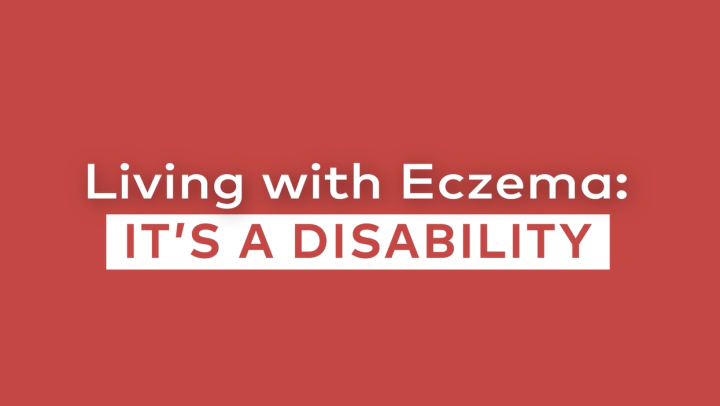
Your skin is your body’s largest organ, and, as someone who’s had eczema for decades, I’ve learned it does a phenomenal job of expressing itself. Even though it can be tricky to interpret, eczema-prone skin will exhibit physical and visual symptoms when it’s irritated, from bright rashes to uncontrollable itch. In essence, your skin is communicating with you. Fortunately, there are many tools we can use to get our skin to quiet down. But just because a medication or cream works initially doesn’t mean it’ll be effective forever. If your eczema treatment stops working, it’s time to consider pivoting and opening yourself up to alternative options. It can be really frustrating when you need to make a change, but I’m proof that when you keep pushing forward, you will ultimately find success. And you don’t have to do it alone. I’ve learned a lot of valuable ways to adjust when my eczema treatment stops working. If you’re feeling the itch or your eczema is ramping up, try these tips to get the relief you need.
If your current method of treating your skin is no longer working, it’s best to book an appointment immediately with your doctor to discuss different medications to treat your skin. If you’re not satisfied with your interaction, it might be time to search for another doctor. A dermatologist will be able to give more insight into your skin than your general practitioner, but if you’re hitting a wall, it can also help to branch out even further. For example, an endocrinologist–a doctor who specializes in hormones–could be beneficial in targeting issues related to your hormone balance, which can impact your skin. It never hurts to explore other avenues, especially when your current strategy makes you feel like you’re on a hamster wheel to nowhere, getting no improvement. If there’s one thing I’ve learned from having eczema, it’s to look into all available options and not settle for something that doesn’t give me the results I need.
One of the biggest advantages of being involved in the online eczema community is the abundance of resources. Our community has grown on a global scale with people from varying backgrounds who are eager to help. Although eczema is not a one-size-fits-all disease, it’s refreshing to have a strong group of people empathize with what you’re going through. They will be there to lean on for moral support, guide you through trying different treatments that may help you, or recommend a particular medical specialist. Our community prides itself on its honesty and integrity, and I highly recommend anyone struggling with eczema to join their fellow patients online. Among many others, there are eczema forums on Reddit, established communities like the National Eczema Association ambassador program, and patient advocates on social media you can find by searching for hashtags like #eczemawarriors.
Although medical treatment is often necessary to keep eczema managed, I've learned I can see a big difference by adopting a healthier lifestyle. In my case, that usually means being more active, eating healthier, getting a proper night's sleep, and changing my skincare routine. In the past, these modifications have worked wonders. While it’s uncomfortable at first to get into a new habit, it’s been a game-changer, and it feels empowering that small things I do every day can make a big impact on my skin.
Sometimes you get so used to discomfort and pain that you don’t think it’s a big deal. This applies to my eczema, as I’ve accepted it as a natural part of life. However, my high pain tolerance shouldn’t be my norm. If my eczema symptoms become bothersome, I try to recognize that it’s not something I just have to deal with. It’s worth the effort and hassle of talking to my doctor about new therapies, or reaching out to the online community for suggestions, because when I find something that works well, my quality of life improves drastically.
Remember: just because your skin isn’t responding to its current treatment doesn’t mean you have to panic. Pivoting to try something new is a natural part of life, and it’s a helpful technique you should apply when it comes to eczema. As a patient, it’s important to analyze how your skin looks and feels, then take it from there. Always know that our community is strong, informative, and most of all, supportive. They will help guide you in this journey and even share effective coping mechanisms. We as an eczema community are our biggest advocates and welcome those suffering with open arms. Remember, you are NOT alone.


















